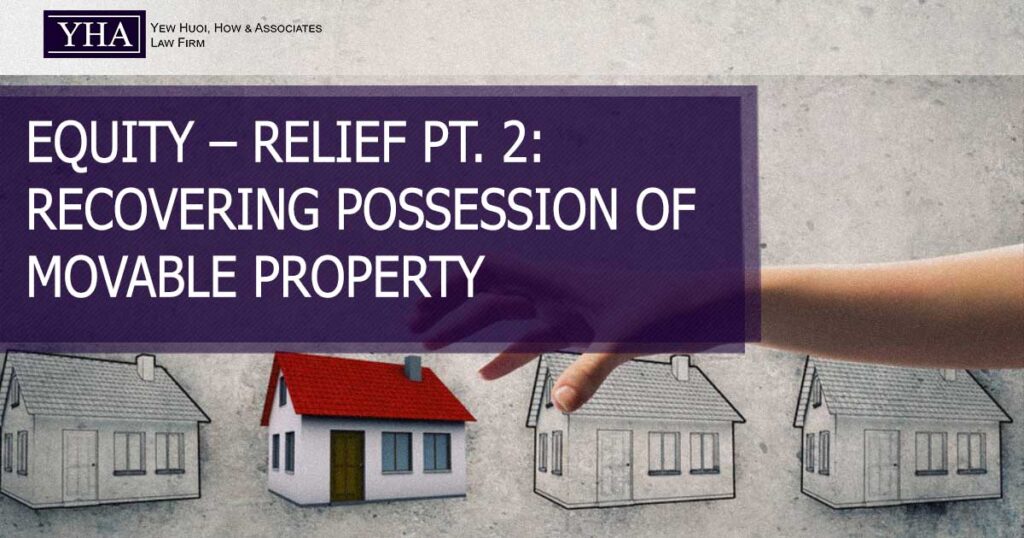During the last legal update on relief and recovering possession under equity, we have explained on recovering possession of immovable property which falls under sections 7 and 8 of the Specific Relief Act 1950 (“SRA 1950”). On the other hand, sections 9 and 10 deal with the same remedy in respect of movable property. This remedy is mentioned in section 4(a) of the SRA 1950 that specific relief is given by taking possession of certain property and delivering it to the claimant, as one of the proprietary remedies recognized by equity.
Recovering Possession of Movable Property
Under section 9 of the SRA 1950, a person entitled to the possession of specific movable property may recover the same in the manner prescribed by law relating to civil procedure. The relief in this section is based on the tort of detinue which is the detention of property with the intention of keeping the property in defiance of the rights of the person entitled to possession of it. An action lies for the specific recovery of the property wrongfully detained by the person entitled to its possession, and also for damages occasioned by the wrongful detainer.
The Malaysian courts have held that in an action for recovery of property under section 9, there is a need for the person entitled to possession to first issue a letter of demand to the person who has detained the property before a writ can be issued under section 9. The rationale for this requirement appears in the decision in the case of Abdul Muthalib bin Hassan v Maimoon bte Hj Abd Wahid.
Other than the prerequisite of making a demand, it was also noted that another requirement in order to recover such property under detinue is the refusal of the person detaining the property to return the property to the person making the demand.
Conclusion
There have not been many cases where the relevant sections in the SRA 1950 have been cited in court when the action is to recover immovable property or immovable property. However, these sections are important as they form the substantive law on the relief, providing the rights to relief and the conditions to fulfil before invoking such relief.

